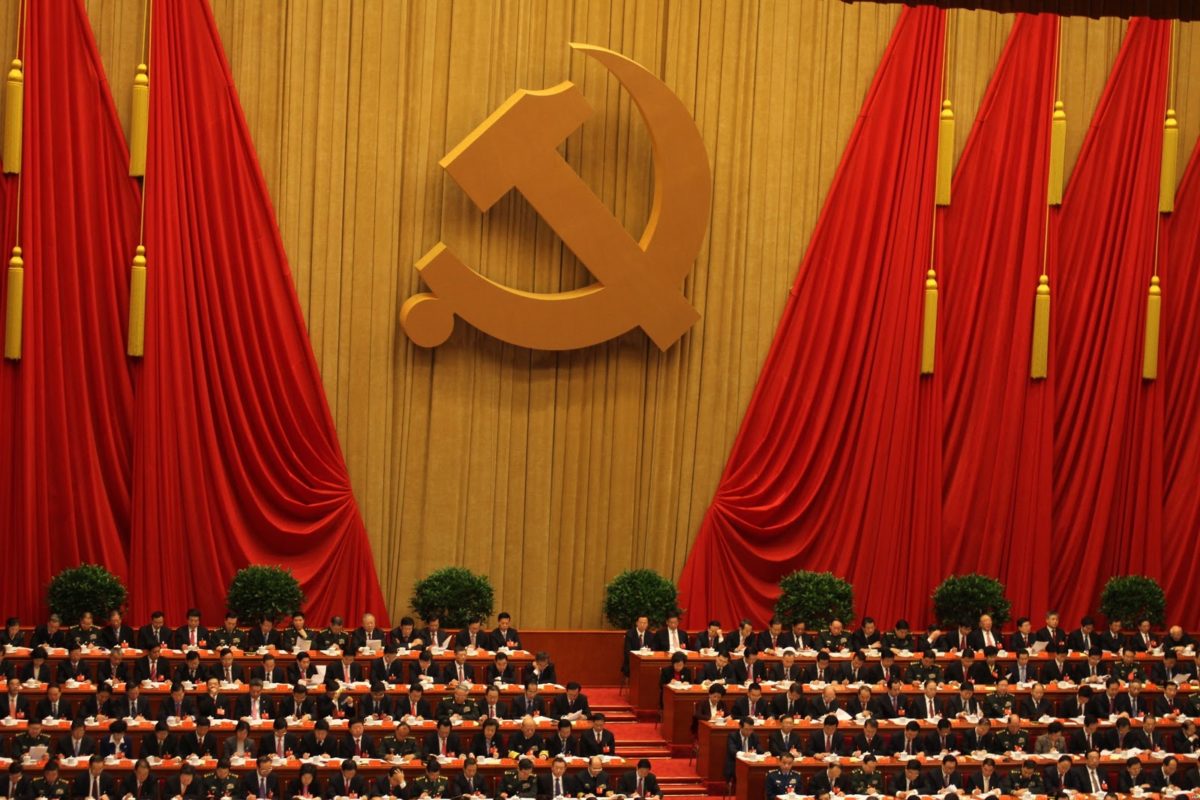What happened at China’s 19th Party Congress
Our pick of the top three takeaways from the Communist Party of China’s National Congress in October 2017, with links for further reading and listening.

We are now two weeks out from the conclusion of the 19th Party Congress, and the Party’s propaganda apparatus is in full swing, advertising what it says are the key themes from the congress for China and the world to know. Below, find The China Project’s list and explanation of the top three themes emerging from Party communications about the congress. Also:
- Listen to this Sinica Podcast for an in-depth discussion of the meaning of the congress, with two of the most astute followers of Chinese elite politics, Bill Bishop and Jude Blanchette.
- Read our explainer on the structure and mechanisms of the congress.
First, Xi Jinping is now essentially the leader of the Communist Party of China for life, and the Party will seek to control all of society more, not less, for the foreseeable future.
- Xi Jinping, commonly referred to as China’s president (which is technically true), has this as his most important title: General Secretary of the Communist Party of China. He also holds chairmanships of around a dozen high-level committees, for which scholar Geremie Barmé dubbed him “Chairman of Everything” in 2014. The nickname has stuck around and only become more relevant since — see this roundup of Xi’s whopping 12 official titles as of early 2017 from the South China Morning Post.
- At the 19th Party Congress, Xi cemented his authority as “Chairman of Literally Everything in China” and achieved an entirely new level of prominence in the Party as his ideology — officially called “Xi Jinping Thought on Socialism With Chinese Characteristics for a New Era” — was enshrined in the Party constitution (see all revisions here on China Social Credit System). As Bill Bishop explains on Sinica, this means that as long as Xi is alive, he will be the ultimate authority on Communist Party ideology in China.
- Though Xi chose no heir apparent at the congress, neither did he break 21st-century retirement precedents for top leaders — as many expected him to do — by keeping close ally Wang Qishan 王岐山 (age 69) by his side on the Politburo Standing Committee. But it is now unclear what will happen in 2022, when Xi’s second term as general secretary is set to expire.
- Wang, for his part, is not gone from Chinese political life: He just authored a chapter in a new state-published book on Xi’s speeches, whose central thesis, SCMP reports, is this: “Upholding the Communist Party’s leading role is the paramount political principle for contemporary China.” This mirrors a line from Xi’s opening speech at the congress: “The party, government, military, society, education, north, south, east, west — the Party leads everything.”
Second, China is becoming a force on the global stage, and the Belt and Road Initiative is going to change the world’s politics and economics.
- Xi said in his opening speech at the congress that China was entering a “new era” where it should “take center stage in the world.” Jude Blanchette says on Sinica that the newly articulated ambitions for world influence were surprisingly notable from the congress, whereas a week prior to the congress, most observers were focused on leadership succession.
- A primary way it is doing this is by promoting its Belt and Road Initiative, and upgrading it to the level of a constitutionally mandated pursuit. Since the congress, the China Daily has reported that the initiative may even extend to an emerging “North Polar sea route.”
- Read about the other global Chinese initiatives on The China Project.
Third, China will make reforms to address inequality and environmental degradation, even if it leads to slower growth, but don’t expect market reform.
- Xi highlighted environmental protection in his speech at the congress, putting the rhetorical backing of a newly unquestionable leader behind a serious crackdown on pollution.
- In its revised constitution, the Party identified a “principal contradiction” in today’s China as that between “unbalanced and inadequate development and the people’s ever-growing needs for a better life,” indicating a genuinely serious focus on addressing inequality through specific economic reforms. Bill Bishop stresses on Sinica that the significance of the principal contradiction cannot be understated. But commentators generally foresee continuity between the way China has managed its markets and market access in recent years and how it will in the near future, meaning, don’t expect market reform.





